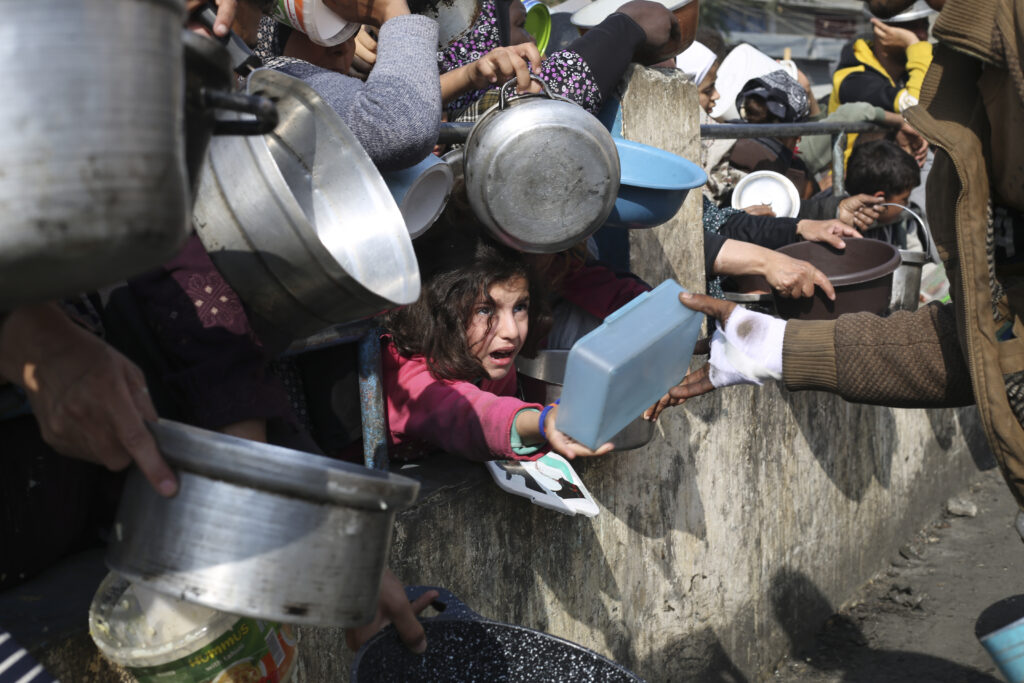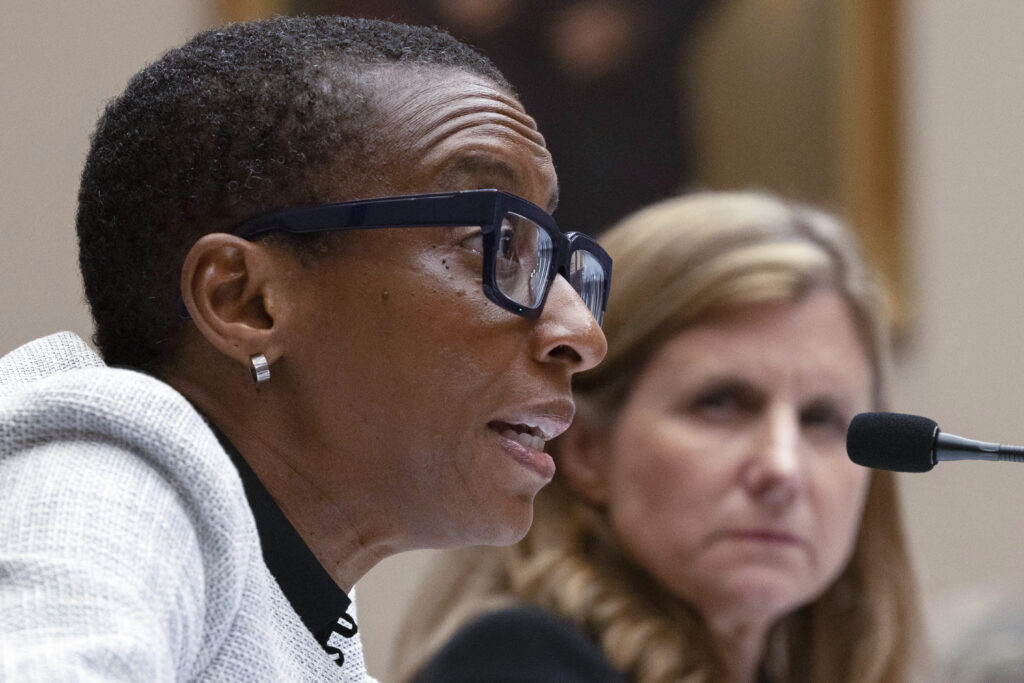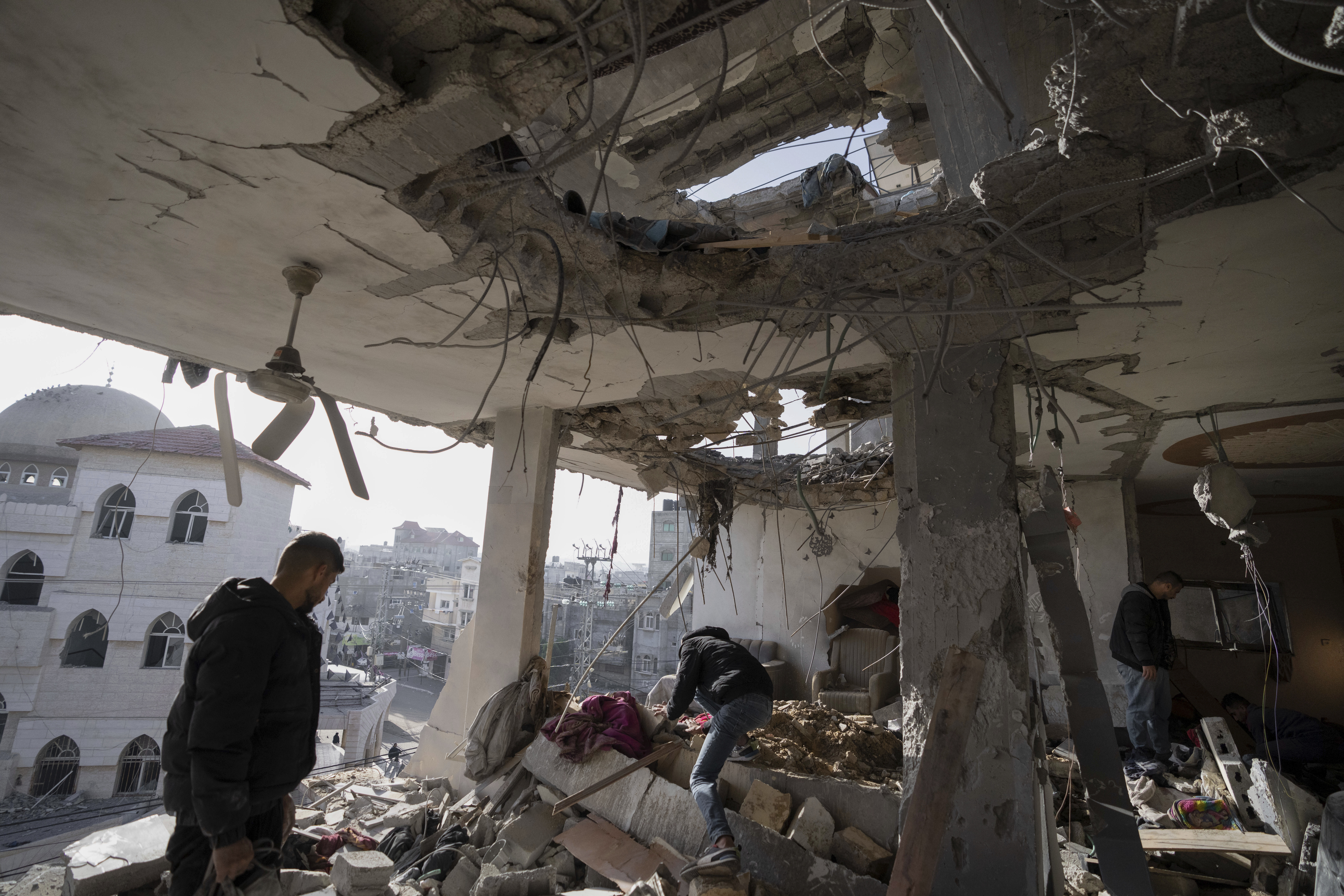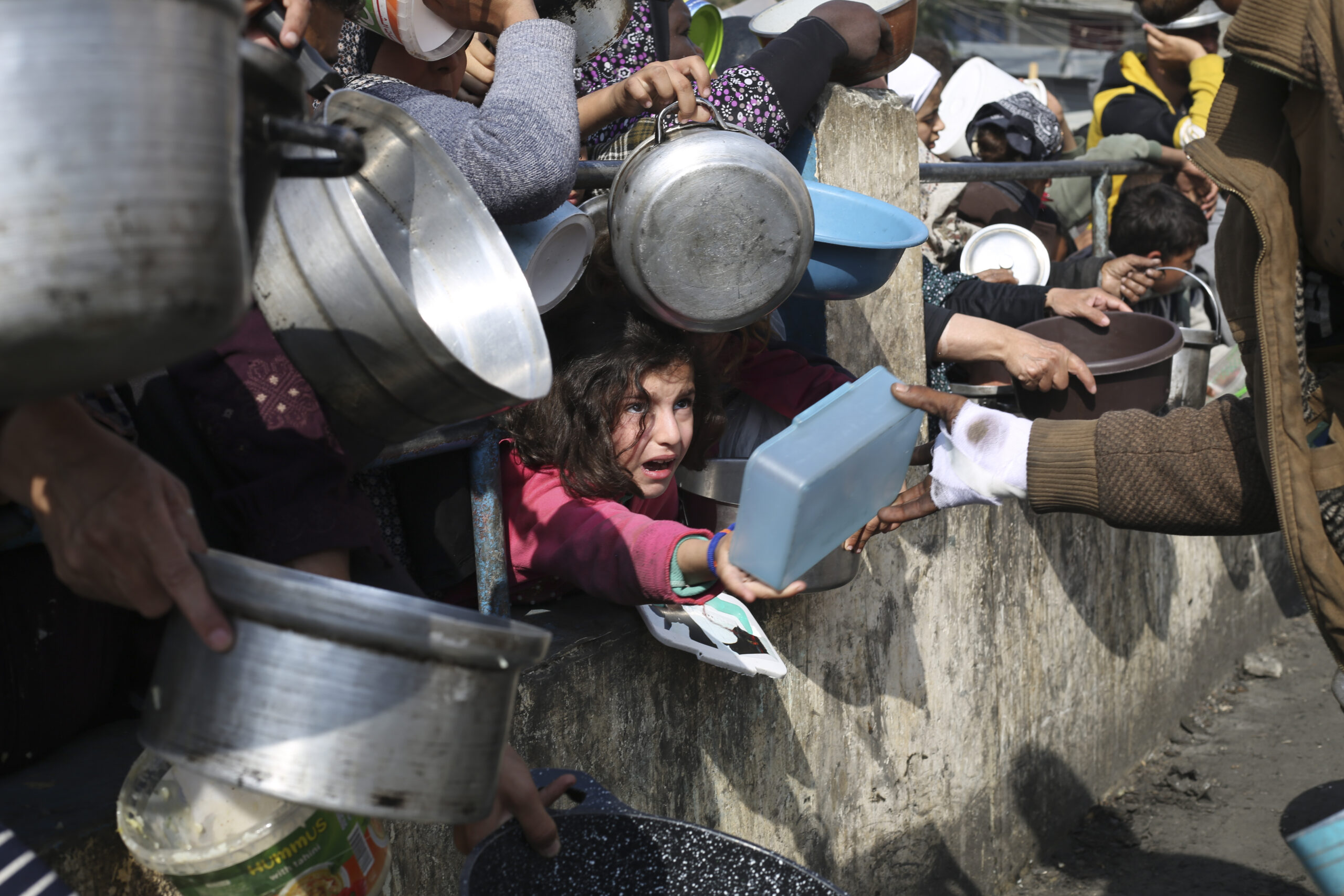The war that erupted in Palestine in October after more than 1,100 Israelis were slaughtered in a Hamas-led terrorist attack, has seen Israel retaliate by killing nearly 25,000 Palestinians and displacing nearly 2 million people.
Though thousands of miles away from the United States, that ongoing human rights crisis is causing casualties of a different nature here.
- Jewish people and anyone perceived to be of Middle Eastern descent have been physically and verbally assaulted by bigots and bullies who were just waiting for an excuse to act upon an unbridled hatred of Jews, Palestinians and Muslims.
- People have lost their jobs and have been “canceled” for not saying enough or for saying the “wrong” thing about the conflict.
- American ideals of free speech have been trampled.
- Black people have been pressured to take sides based on past support they have received from both Jews and Palestinians, and some of them are denouncing each other for remaining silent or taking the “wrong” position.

The most prominent Black casualty has been Dr. Claudine Gay, who had been the president of Harvard University for only six months before she was forced to resign on Jan. 2. A campaign against her was launched after she and the presidents of two other universities poorly answered questions during a Congressional hearing that was as much an ambush by conservative Republicans as it was an exercise of legitimate concern for the safety of students on college campuses. A wealthy donor who had earlier questioned her qualifications to be president and intimated that she had been an affirmative-action hire was joined by others who combed through her history in search of ammunition. Finding that she had not properly attributed some passages in her dissertation and other writings to their sources, they pilloried her for plagiarism. Harvard’s institutional support faltered.
Gay wrote in The New York Times a day after her resignation: “My character and intelligence have been impugned. My commitment to fighting antisemitism has been questioned. My inbox has been flooded with invective, including death threats. I’ve been called the N-word more times than I care to count.”

Like so much of what passes for righteous indignation since the Hamas attack on Oct. 7, people with competing agendas are conveniently using the Israeli- Palestinian conflict to mask their real motivations – including old-fashioned home- grown racism, antisemitism, xenophobia, Islamophobia, white supremacy, sexism, Christian nationalism, anti-intellectualism, partisan politics and opposition to institutional commitment to diversity, equity and inclusion (DEI). How indignant one is and how insistent one is about a particular view of what is right or wrong is often connected to a calculation about what it takes to persuade believers to donate money to the cause.
News of the slaughter of more than 1,100 people and the kidnapping of hundreds more — Israelis, Americans, and guest workers from the Philippines and various African countries — brought swift condemnations from the White House, from Congress, from many civil and human rights organizations, and from much of mainstream media. The Congressional Caucus on Black-Jewish Relations — co-chaired by Democratic U.S. Reps. Nikema Williams of Georgia, who is Black, and Debbie Wasserman Schultz of Florida, who is Jewish, was typical. Members condemned “the brazen Hamas attack on Israel” and supported Israel’s “unequivocal right to defend itself and its people.”
“We stand with Israel,” the caucus declared, adding: “The bond between the United States and Israel is, and will always be, ironclad.”
With some senior Israeli officials making it clear that they meant to eliminate a Palestinian presence in the area, the government’s scorched-earth response led some allies to rethink an unqualified “We stand with Israel” position. Both sides have been manipulating mainstream media, but images from the war front cannot be unseen: civilians killed in their homes, in hospitals, in day care centers, in mosques; people being deprived of food, water and other aid from relief organizations; and unmitigated grief as parents mourn the loss of children and the elderly and disabled struggle to find safety.

A few days after the unequivocal “We stand with Israel” statement Rep. Williams — but not her caucus co-chair — joined 58 other members of Congress in signing a letter that urged the Biden administration to pressure Israel to abide by “international law and take all due measures to limit harm to innocent civilians”; “quickly restore the delivery of food, water, fuel, electricity, and other life-saving necessities to Gaza to ensure that innocent civilians have the basics needed for survival,” and work with other countries in the region “to establish a humanitarian corridor to enable the delivery of such life-saving necessities and to allow Palestinian civilians and foreign nationals, including U.S. citizens, to seek safe haven outside of Gaza.”
As the bombardment continues, international and Israeli human rights organizations have used words like “genocide” and “war crimes” to characterize the Israeli response. Cornel West, the scholar and political independent who has launched a 2024 presidential campaign, has demanded that the International Criminal Court “launch an immediate investigation into likely war crimes committed by Israeli Prime Minister, Benjamin Netanyahu and the Israel Defense Force (IDF).” South Africa has filed a genocide case against Israel in the International Court of Justice related to the war in Gaza.
Here in the United States, student activists have clashed with college administrators over what they can say and who can speak about the conflict, and some student groups have been suspended or banned outright. Some professors have lost jobs or promotions. Cultural organizations are in turmoil over exhibitions and performances. A month after the Hamas attack, U.S. Rep. Rashida Tlaib, D-Mich., the only Palestinian-American member of Congress, was censured for what some of her colleagues — mostly Republicans — said amounted to “promoting false narratives regarding the October 7, 2023, Hamas attack on Israel and for calling for the destruction of the state of Israel.” Tlaib denied that interpretation of her public comments and added: “My work and advocacy is always centered in justice and dignity for all people no matter faith or ethnicity.”
In Maryland, Attorney General Anthony Brown suspended Zainab Chaudry from the state’s Commission on Hate Crimes Response and Prevention for her social media posts that some critics deemed to be anti-Israel. Chaudry, who is also Maryland director of the Council on American-Islamic Relations, a civil rights advocacy group, was reinstated two weeks later after Brown realized that he did not have the authority to suspend her.
A group called Black Women Radicals has challenged feminists who revere such icons as Audre Lorde, Angela Davis, June Jordan, bell hooks, and Beverly Guy-Sheftall. “Your silence on Palestine is complicit,” they said in a statement.
Supporters of both Israel and Palestine are demanding that Black Americans side with their cause in this fight, and alarms are being raised that the longstanding Black-Jewish alliance is losing out to a growing affinity for the Palestinian people.
Vox, a multimedia news company, reported that in “a now-deleted post on X, which was reposted more than 1,000 times, writer Daniella Greenbaum Davis wrote, ‘Jews marched in Selma. Jews marched for George Floyd. Jews showed up for Black Lives Matter. BLM is a disgrace. We will all still be there for you guys next time. Because that’s who we are. But now we know who you are.’”
Former NBA star Amar’e Stoudemire, a Black man who is now an Israeli citizen and a Jewish convert, angrily denounced Black Lives Matter leaders and politicians for not immediately condemning the Hamas attack. “For all y’all Black Lives Matter (supporters) ain’t saying nothing, ‘Well let me figure out exactly what’s happening before saying anything.’ (Bleep) you,” he said in a video posted on Instagram.
Palestinian activists, in an attempt to win Black support, have cited the prominent involvement of Palestinian-American Bassem Masri in organizing protests in Ferguson, Missouri, following the slaying of Black teen Michael Brown by police in 2014. They also point out displays of solidarity in Gaza after the death of George Floyd in Minneapolis, Minnesota, in 2020.
Long before the latest war, polls showed that Israel retained strong support among Americans overall, but that support for Palestinians was growing – especially among those who identified as Democrats, as most Black voters do. Gallup reported last March that in 2001, “51% of Democrats told Gallup their sympathies lay more with Israelis, while 16% said their sympathies were more with Palestinians. Those numbers flipped by 2023, with 38% of Democrats saying their sympathies were more with Israelis and 49% saying their sympathies lay more with Palestinians.”
Among those who are pro-Israel no matter what are Black Hebrew Israelites and Pastor Dumisani Washington, founder of the Institute for Black Solidarity with Israel (IBSI), who posits that Black Americans have been hoodwinked by what he deems “genocidal global antisemitism” promoted by Palestinian leaders.
But the cause of the Palestinian people has been taken up by celebrities who use a variety of platforms, millennials and Gen Zers on Instagram and TikTok, and students like those at Spelman College in Atlanta and Morgan State University in Baltimore who have marched in protest.
“For me, solidarity isn’t just about, ‘Oh, you had my back yesterday so I’m going to have your back now.’ It’s not tit for tat or keeping score,” said Dr. Erica Williams, an anthropology professor at Spelman. “My solidarity tends to go with the underdog. Who’s being oppressed right now? For me, that’s Palestinians.”
Similarly, one of my Gen Z Morgan State University students observed that Black people can empathize with “the struggles that both Palestinians and Jewish people have faced throughout history.” But, she added: “From what I am able to see, the majority of the people I know who are aware of what’s happening in Gaza, who are in my age group and look like me, are in support of Palestine and their fight for freedom, even though they may be unsure on how to accomplish that.”
Embrace the complexity, Angela Davis, the feminist scholar and activist, advises.
“We are aware of the danger of simplistic analyses and assumptions that there are always only two sides to choose from and there’s only one that can be chosen,” she said during an October webinar. “To criticize the Israeli government is not antisemitism. And also, it is possible to oppose the attacks by Hamas and say a resounding collective ‘No!’ to the massive Israeli incursion that is now taking place in Gaza.”
Pulitzer winner E.R. Shipp is a multimedia journalism associate professor at Morgan State University, former staffer for The New York Times and an NABJ Black News & Views contributor.








